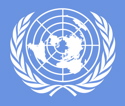On July 10, the U.N. Monitoring, Verification and Inspection Commission (UNMOVIC), which had conducted WMD inspections in Iraq, formally ceased operating when its staff contracts expired. Two weeks earlier, on June 29, the U.N. Security Council (UNSC) had voted to dissolve the commission. This Security Council decision was a mistake. The UNSC should instead establish a small force of WMD inspectors that could assist with current WMD monitoring tasks and could rapidly expand to lead future U.N.-authorized inspection missions. UNMOVIC was the immediate successor to the U.N. Special Commission (UNSCOM), established by the UNSC in 1991 to oversee the postwar dismantlement of Iraq's chemical, biological, and nuclear weapons programs, along with its long-range ballistic missile arsenal. UNSCOM did find considerable WMD-related programs in Iraq -- and proceeded to end most of them. One reason why Saddam Hussein did not resume his pre-Gulf War WMD programs might have been the intense inspection and monitoring regime imposed on Iraq after it lost the Gulf War. The UNSC established UNMOVIC in 1999 to search for evidence of biological and chemical weapons activity in Iraq. It conducted on-site inspections in Iraq between November 2002 and March 2003 and supervised the elimination of Iraqi chemical and biological agents as well as ballistic missiles. After March 2003, the Iraq Survey Group assumed responsibility for on-site WMD-related inspections.
U.N.’s Decision to Dissolve UNMOVIC is a Mistake

